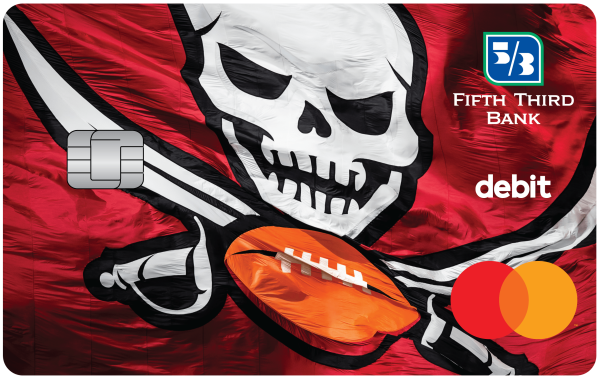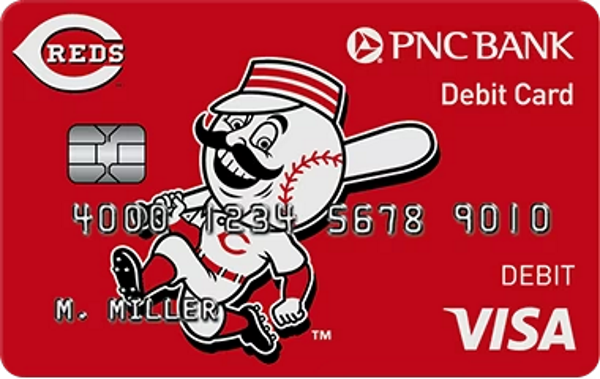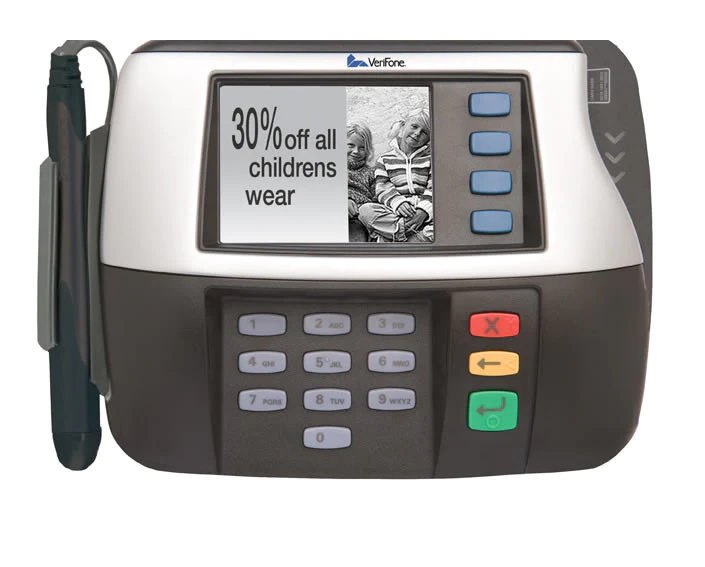
A credit card network is responsible for approving, processing, and setting the terms of credit card transactions and transferring payments between customers, merchants, and their banks.
To get the most out of your plastic purchases, know-how payment transactions are processed and where your card is (or isn’t) likely to be accepted.
Join the Accepted Platinum Credit Card Rewards Program!
Table of Contents
What Is a Credit Card Network?
A card network’s job is to make transactions between merchants and card issuers easier.
Card networks accomplish this by establishing virtual payment infrastructures and charging merchants interchange fees for processing credit or debit card transactions.
Mastercard, Visa, American Express, and Discover are the four major credit card networks. As we’ll see in the next section, two of the four networks — Amex and Discover — are also card issuers.
Card networks facilitate transactions, but they also determine where credit cards are accepted.
You may notice different network logos at checkout or merchants stating they don’t accept certain cards because not every merchant agrees with all networks.
According to the Nilson Report, the major card networks have similar acceptance rates: Visa and Mastercard are accepted at 10.7 million U.S. locations. In comparison, Amex and Discover are accepted at 10.6 million U.S. locations.
Finally, card networks have collaborations in various industries, including travel, transportation, dining, and entertainment.
Depending on your terms and benefits, having a card within a particular network may entitle you to travel perks, purchase protections, and more.
How Credit Card Networks Work?
American Express, Discover, MasterCard, and Visa are the four major credit card networks in the United States. Credit card networks, also known as card associations, may operate slightly differently, but the fundamental principles remain the same.
Payments can be transferred between customers and merchants through a card network, which serves as one of the underlying links.
Transaction information between the merchant’s bank (also known as the acquiring bank or acquirer) and your financial institution is communicated via a card network when you purchase using a credit card.
Customers of card networks benefit from services such as fraud monitoring and rule creation for the cards part of the network.
The magnetic strip will be phased out entirely by 2033, as announced by Mastercard, which will no longer require it on its cards starting in 2024.
Card networks set interchange fees, such as a flat fee and a percentage of the transaction amount, to collect their services.
Merchants who accept payments from cards issued by a credit card network must pay these fees, which are split among the various parties involved in processing the transaction.
Customers in the United States don’t have to worry about card networks being accepted as much as they used to.
Visa, Mastercard, Discover, and American Express are accepted by nearly every business that takes credit cards.
Depending on the card network, you may take advantage of additional perks with your card, so keep this in mind when making your application.
What Are Credit Card Issuers?
Credit card issuers are financial institutions that offer consumers credit cards and credit limits. Credit card issuers manage various aspects of credit cards, from the application and approval process to card distribution, card terms and benefits (such as annual fees and rewards), and payment collection.
Additionally, card issuers determine the amount of credit they will extend to you and make the final determination on whether a transaction you initiate is approved or denied (more on how transactions are processed below).
Here are some major credit card issuers:
- American Express
- Bank of America
- Capital One
- Chase
- Citi
- Discover
- U.S. Bank
- Wells Fargo
Join the Accepted Platinum Credit Card Rewards Program!
Credit Card Network vs. Credit Card Issuer
Credit card issuers are the companies that offer credit cards to consumers and businesses. While credit card networks facilitate the transfer of information, credit card issuers are the companies that provide credit cards to consumers and businesses.
The card issuer may be the one to decide who is eligible for the card, as well as the fees and rewards it offers.
When it comes to paying your bill or reporting your card as lost, you’ll mainly deal with your card issuer (not the card’s network).
Because they also issue credit cards, American Express and Discover are unique among the extensive four credit card networks.
You’ll need to apply for a Visa or Mastercard credit card through another financial institution, such as Chase, Citi, Bank of America, or Capital One. Credit One Bank is one of the few card issuers that offer American Express cards.
Even though they issue many credit cards, some large credit card issuers aren’t well-known. Many store credit cards, for example, are issued by Synchrony Financial and Comenity Bank, two major credit card issuers.
Although the retailer’s name may be printed on the front of your card, the card issuer is responsible for managing your account, collecting payments, and reporting the account’s status to credit bureaus.
How Do You Choose the Perfect Credit Card Network and Issuer?
The decision to use a credit card is always a personal one. Before you apply, you should check your credit and see what types of accounts you might be eligible for.
For example, if you have fair credit, it’s probably not a good idea to apply for premium rewards cards that require excellent credit.
After that, you can concentrate on which cards provide the best benefits based on your spending habits.
Perhaps you spend a significant amount of money on dining each month. If that’s the case, a credit card with higher dining rewards might be a good fit for you.
A diverse set of credit cards allows you to make more purchases and benefit you in other ways. Carrying cards from multiple credit card networks and issuing banks can also be beneficial.
If you have a problem with a credit card issuer reducing your credit limits or closing your accounts, having multiple credit cards from different banks may benefit you.
Credit utilization, or the percentage of your credit card limits that are used, has a significant impact on your credit scores.
You can benefit from having more available credit (i.e., a lower credit utilization rate). The key is never to charge more than you can afford to pay off in a given month, whether you have one credit card or twenty.
Finally, having multiple credit cards (from any credit card network or issuer) may help you keep your credit utilization rate low.
Related Question And Answer
How does a card network work?
Payment processors receive batches of authorized transactions from merchants. Transaction details are sent to the card associations, which communicate debits to the banks in their network. The cardholder’s bank account is charged for the transactions.
What are the four major payment networks for credit card?
The four major credit card networks are Mastercard, Visa, American Express and Discover.
What are the debit card networks?
The five major debit card networks are UnionPay, American Express, Discover, Mastercard, and Visa.
Why do we need card network?
Why do we need card network? Credit card networks are responsible for facilitating credit card transactions. All transactions between a merchant and a credit card issuer are handled by a credit card network, which is responsible for controlling where credit cards are accepted.
How do credit card networks make money?
Merchants typically pay a fee to networks in order to accept credit card payments electronically. Consumers are charged interest and fees for using their credit cards, which the issuers profit from.
What are credit card network fees?
Average credit card processing fees: 1.3% to 3.5%
| Payment network | Average credit card processing fees |
|---|---|
| Visa | 1.29% + $0.05 to 2.54% + $0.10 |
| Mastercard | 1.29% + $0.05 to 2.64% + $0.10 |
| Discover | 1.48% + $0.05 to 2.53% + $0.10 |
| American Express | 1.58% + $0.10 to 3.45% + $0.10 |
How many card networks are there?
There are 4 major credit card networks: Visa, Mastercard, AmEx, and Discover.
What is the biggest card network?
In terms of credit card networks, Visa is by far the most popular. For American Express and Mastercard credit cards, volume of transactions processed on the network is more than double. Discover came in fourth place in 2016 with a transaction volume of $0.121 trillion.
What is payment network?
A payment network is a debit or credit network that allows funds to be transferred (such as the ACH Network or the ACCEL / Exchange payment network). Visa or MasterCard are examples of payment networks.
Do credit card companies make money if you pay full?
Even if you pay your credit card bill in full every month, credit card companies can profit from your account. The issuer charges the merchant a fee every time you use your card to process the transaction. An interchange fee is what it’s called. Interchange fees typically range from 1% to 3% of the total transaction value.
Does MasterCard charge a fee?
The assessment fee is a much smaller credit card processing fee, one that you pay directly to the card network (Visa, MasterCard, Discover, etc.). Assessment Fees.
| MasterCard | Discover | Visa |
|---|---|---|
| 0.12% (Transactions < $1,000) | 0.105% | 0.13% (Credit) |
| 0.13% (Transactions > $1,000) | N/A | 0.11% (Debit) |
How much does a credit card cost per month?
Based on the average American credit card balance of $5,525 and the average minimum payment percentage of 2%, the average monthly credit card bill is a minimum payment of $110.50.
Who’s bigger Visa or MasterCard?
Visa and Mastercard have nearly identical global merchant acceptance footprints, despite Visa’s larger transaction volume, purchase volume, and card in circulation.
What network does Mastercard use?
Mastercard is a network payment processor. Financial institutions that issue Mastercard payment cards that are processed exclusively on the Mastercard network are Mastercard partners. The fees that Mastercard charges issuers based on each card’s gross dollar volume are the company’s primary source of revenue.
What is a PIN debit network?
What is a PIN debit network? When we, the customer, make a PIN debit transaction, we enter our personal identification number or PIN to complete the transaction. The transaction is routed through the debit network rather than the credit card network when the debit card is processed as a PIN; more on this in a moment.
Bottom Line
Credit card networks help keep our cards working, but because they don’t directly give us rewards (except for Amex and Discover, which are both networks and card issuers), it’s easy to forget about them. Check your wallet if you haven’t already. Make sure you have cards from different companies and different networks, just in case you need them.



